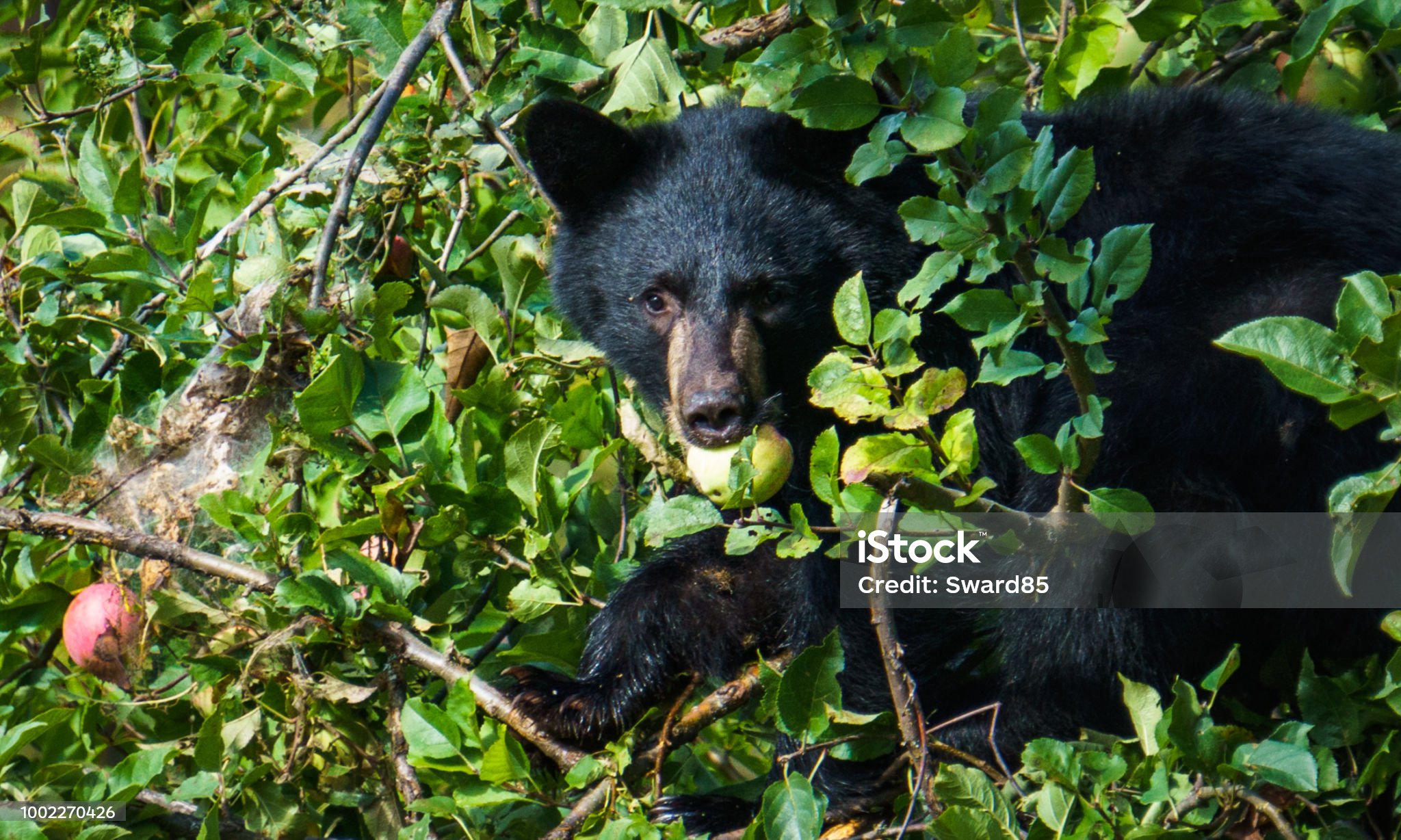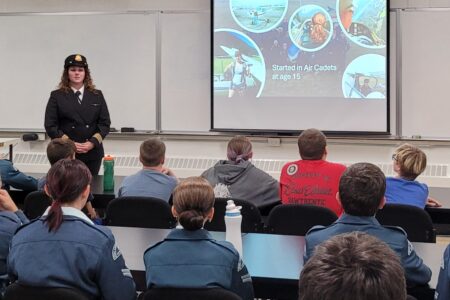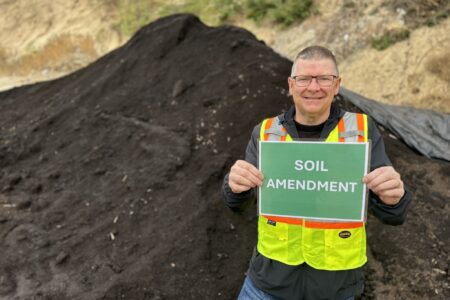Help keep bears (and humans) safe
By Nancy Bulman and Cindy Loukras
Local black bears are currently descending from cooler elevations to pack on winter fat. The Rossland Bear Smart Task Force wants to help both the bears and you.
During August and September, our lovely climate allows for prime fruit ripening — the delicious fruit is excellent for fresh eating, pies, juice, muffins and other recipes; it also attracts local bears, if we let that happen. They want those extra calories! The photo-op spectacle of bears and their young feasting on our fruit trees has a dark side.
During the fall, bears must eat 10,000 to 20,000 calories daily to prepare for winter torpor (deep sleep). Their best food source is anything with fat, for instance, insects and their larvae, carrion, and small critters. High-protein tubers are also dug up in the wild. Fruit calories come primarily from fructose. Bears will do better eating a naturally wild buffet.
We also need to consider that a mother bear (sow) has the physiology to reabsorb her fetuses until she only carries the number of cubs she can feed; the mechanism is triggered by her body fat ratio when she enters her den. If she is full of human-made food, she will carry to term more cubs, but as she’s been reliant on human food and not just wild food, she might not be able to feed them in the spring on only wild food. She will return to town and thus teach her cubs how to find human food.
A much darker side of letting bears share our fruit is that it can lead to them being killed. Some bears will progress from our fruit trees to our homes. Unfortunately, this intrusive behaviour tends to worsen. Bears who attempt to enter our homes and unlocked vehicles will persist and become increasingly skilled at breaking in. If they are trapped in a home or vehicle, they will become stressed and frightened, which can lead to destructive and aggressive reactions. Do not approach a bear in this state, and ensure there is a way for the bear to escape.
A home or vehicle entry by a bear can result in a call to Conservation Officers (the local number is 877-952-7277). Often, the CO must then shoot the bear(s). It is an action they work hard to avoid. They’re conservation officers; they are trained to help keep wild creatures alive and wild. The second half of their job is to protect humans. Your sharing fruit with bears can cause the COs to do what they dislike most about their job.
So… what can you do?
The easiest solution is to pick your fruit as it ripens and compost or green-bin fallen fruit. For fruit sharing, visit the Rossland Harvest Rescue Facebook page, where you can message about sharing your fruit or find those who have excess fruit to share. If you cannot maintain your fruit trees, please consider removing them.
Additionally, every September, we, along with the Rossland Food Security Task Force, host a community fruit pressing day.
Community Fruit Pressing Day is September 13th, from 10:00 AM to 3:30 PM, at the home of Tristan Read, 2257 Thompson Ave. Sign up for a time slot and bring your apples. Our experienced team will press them into delicious juice for you. Suggested donation $20. More info? Check out the instructions on the sign-up page below. Be sure to bring containers for carrying your juice home. We ensure that the leftover mash is responsibly composted at a yard with an electric fence perimeter.
Can’t make it on Sept 13th? Consider borrowing the portable apple press and pressing your fruit at home. More info on the portable press and the sign-up sheet can be found here: https://docs.google.com/spreadsheets/d/1kc5fNp0iHKBV-Sqy6l0hQqrP7jGWRJGsOXVy2dCOwss/edit?pli=1&gid=0#gid=0
Volunteers of the Rossland Bear Smart Task Force wrote this article. Find our web page on the Rossland Sustainability site: https://rosslandsustainability.com and tap the Bear Smart Task Force link.























